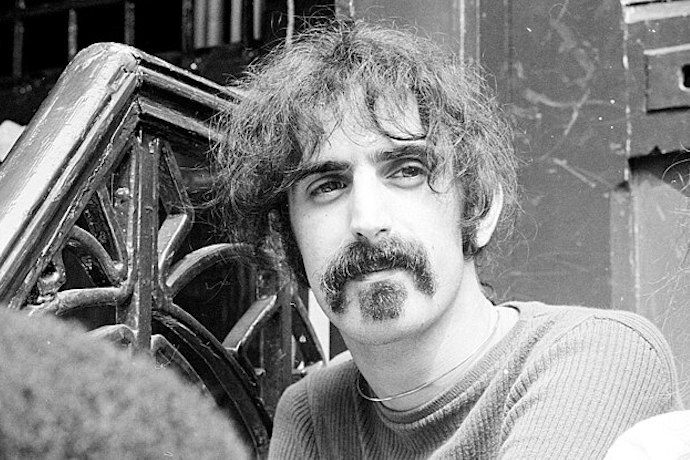By George Comber
Although everyone’s idea of what ‘Rock Music’ is differs from person to person, and its variations are too great in number to account for, each evolution from what Chuck Berry and Little Richard laid out as the conventions of Rock’n’roll in the 50s each borrow from classical music. Here are five great examples of rock music inspired by classical music.

The Beatles: ‘Blackbird’
As Paul McCartney explained in an interview with Michael Parkinson, he and George Harrison had a ‘show off piece’ of guitar they’d play: Bach’s fifth movement from the Suite in E minor. He went on to explain how he had used to play it slightly incorrectly and, by going along with this deviation of his, ended up with one of the most recognisable acoustic guitar pieces of all time: the 1968 album track Blackbird. Professed by McCartney to be a reference to the ongoing Civil rights issue in America, offering words of care and support to the oppressed black communities, the song has reached far beyond its social context of the 60s, and is now a staple piece of I-can-play-the-guitar-good that will echo for generations with its beautiful and whimsical melody. And now we know whom to thank for that.
Muse: ‘Space Dementia’
Next on our list of rock music inspired by classical music: from their hit 2001 album, Origin of Symmetry, Muse’s ‘Space Dementia’, along with a large proportion of their era-defining, grand scale epics, is a thinly veiled example of classical music seeping its way into modern mainstream rock. Lead singer and guitarist Matt Bellamy has previously acknowledged the influence of Rachmaninov on their earlier albums: Showbiz (1999), Origin of Symmetry (2001), Absolution (2003). But when listening to ‘Space Dementia’ and Rachmaninov’s Piano Concerto No 2 side by side, it would be quite hard to distinguish them from each other, were it not for Muse’s staple heavy guitar and Bellamy’s operatic, distinctive vocals. The opening piano parts of the concerto follows a slow, anticipatory pattern before Rachmaninov’s orchestra comes in full power. And Bellamy’s brash ascending piano and distorted guitar mirrors this pattern of build-up and release. Other Muse tracks, such as Butterflies and Hurricanes, which implement a huge classical piano and string sound halfway through the song are further examples of classical music being repurposed with modern production techniques and sounds.
Pet Shop Boys: ‘Go West’
An archetypal example of rock music inspired by classical music, the Pet Shop Boys’ 1992 cover of the Village People’s ‘Go West'(1979) uses a sample of Pachelbel’s Canon in D which, throughout the past five decades of music history, has had its major descending pattern borrowed by artists including Green Day (Basket Case), Oasis (Don’t Look Back In Anger), Queen (White Queen) and Kylie Minogue (I Should Be So Lucky). First performed at the Hacienda in Manchester for an AIDS benefit gig, the Pet Shop Boys’ version of the song showcases the band’s signature electronic, new wave sound, realising the dance-hall potential of Pachelbel’s chord progressions.
Frank Zappa: ‘Muffin Man (ft Captain Beefheart)’
Now we’re getting into the proper stuff. It can be said that Zappa, thanks to his outrageous, discordant and experimental style, is one of the most loved musical icons from the latter part of the century. So it might be surprising to hear that he was influenced by the Russian classical composer Igor Stravinsky, who died only 4 years after the release of Zappa’s 20th studio record Bongo Fury . The shockwave caused as a result of Stravinsky’s discordant yet beautiful style upon music as a whole can be heard clearly in many of the works of Zappa, but particularly in his 1975 classic collaboration with Captain Beefheart, ‘Muffin Man’. The opening section of Zappa’s signature narration is backdropped by discordant piano dancing around harsh melodies that sound like they shouldn’t work but do – a similar effect to that of The Rite of Spring. Where both Stravinsky and Zappa find discordance, they also find a blissful freedom and beauty.
- Watch: Conductor Greg Batsleer on mixing Handel with electronic music
- Read: Medieval hurdy gurdy meets heavy metal
Radiohead: ‘Exit Music (For A Film)’
Name a better way to end a list of rock music inspired by classical music than Radiohead’s seminal 1997 release from OK Computer. Recorded to backdrop a modern portrayal of tragedy and young love – Baz Luhrmann’s 1996 Romeo and Juliet – this song takes influence from Frederic Chopin’s Prelude in E minor. The similarities emerge in the melody of the song’s opening line: ‘Wake from your sleep The drying of your tears.’ And the soft and contemplative verses which, in usual Radiohead fashion, turn into cathartic electronic and sonic landscapes have something of Chopin’s dark and brooding climaxes. But like Luhrmann’s gun-filled version of Shakespeare’s world, ‘Exit Music’ is nothing if not experimental: Chopin with fuzz pedals.